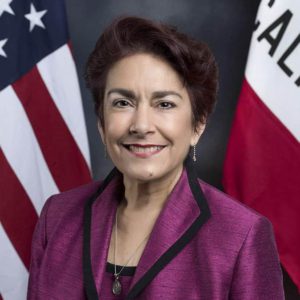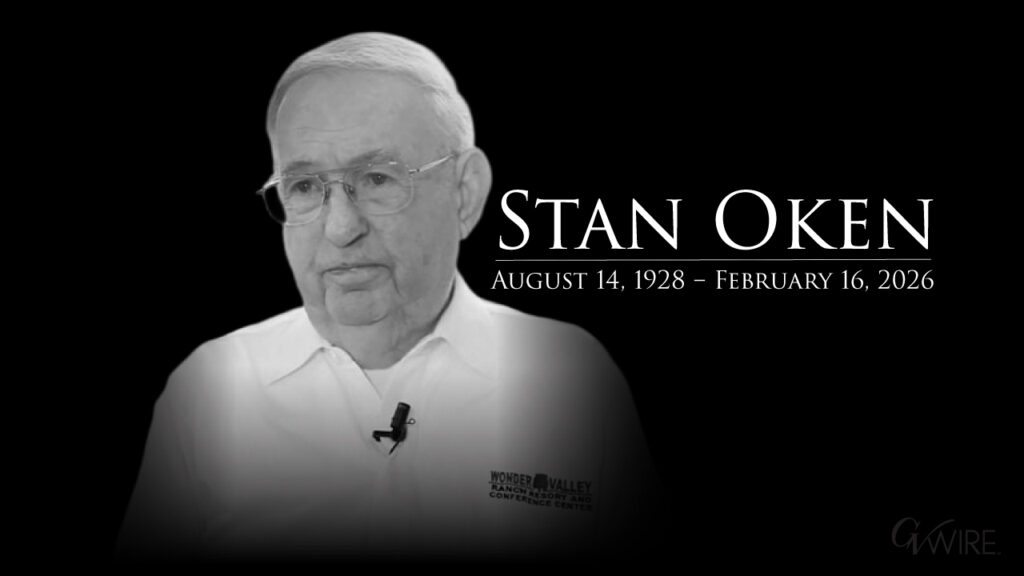Left to right: Valley legislators Esmeralda Soria, Devon Mathis, Anna Caballero, and Joaquin Arambula had bills signed into law this week by Gov. Gavin Newsom. (GV Wire Composite/David Rodriguez)

- Valley lawmakers got bills signed this week by Gov. Newsom. They range from solar energy to labor trafficking to school safety.
- One law clears hurdles for Westlands Water District's massive energy project that could provide 20 megawatts of solar energy.
- Newsom has until Sept. 30 to sign remaining bills on his desk.
Share
|
Getting your Trinity Audio player ready...
|
Assemblymembers Esmeralda Soria, Devon Mathis, and Joaquin Arambula, along with Sen. Anna Caballero, are celebrating legislative wins with Gov. Gavin Newsom’s signature on bills they authored.
Ranging from school safety to green energy to farmworker housing and human trafficking, the bills represent different efforts from Central Valley lawmakers.
Newsom has until Sept. 30 to sign the remaining bills on his desk into law.
Soria Law Allows Westlands’ Entry into Energy Business
It will be 10 years or so before the massive Valley Clean Infrastructure Plan can fully produce a planned 20,000 megawatts of solar energy in Westlands Water District, according to Elizabeth Jonasson Rosas, deputy general manager of external affairs with the organization.
Assembly Bill 2661 from Soria (D-Merced) clears a major legal hurdle for the project.
The law signed Thursday by Newsom allows Westlands to produce solar energy and build transmission lines. Soria said the bill would help achieve green energy goals while creating job opportunities for farmworkers transitioning into skilled trades.

“AB 2661 better positions the Central Valley to play a larger role in helping our state meet our ambitious clean energy goals, while finding productive solutions for water constrained lands and ensuring our farmworkers are not left behind.”
— Assemblywoman Esmeralda Soria (D-Merced)
“AB 2661 better positions the Central Valley to play a larger role in helping our state meet our ambitious clean energy goals, while finding productive solutions for water constrained lands and ensuring our farmworkers are not left behind,” Soria said.
Related Story: Inside Look at Fresno County Westside Solar Plan to Power 9 Million Homes
As water becomes more expensive, farmers fallow land. Increasingly, farmers used that open land for solar energy. Before the law, growers had to individually contract with solar companies to build panels on land.
The bill also allows Westlands to sell excess energy to other utility companies, according to the most recent Assembly analysis. It also allows Westlands to sell the usage of transmission lines.
The bill requires Westlands to create a community benefits agreement to ensure local communities are helped by the Valley Clean Infrastructure Plan.
“We are grateful for Assemblywoman Soria’s leadership in recognizing water districts can play a significant role in generating solar power, especially in the Central Valley where fallowed land needs to be repurposed for productive use,” said Westlands General Manger Allison Febbo.
Mathis’ School Safety Bill Becomes Law in His Final Months
Authored by Mathis (R-Visalia), Assembly Bill 960 encourages schools with more than 100 students to grant first responders access to surveillance systems before 2030.
Mathis said the law will help protect students from threats.
“As long as there are evil people in the world intent on harming our children, I want our schools to have the best and most modern security available,” Mathis said in a statement. “In my district, the Tulare County Office of Education has developed ActVnet, a web-based program that enhances emergency response and school safety by improving coordination between schools and law enforcement.”

“As long as there are evil people in the world intent on harming our children, I want our schools to have the best and most modern security available.”
— Assemblyman Devon Mathis (R-Visalia)
ActVnet gives first responders access to live camera feeds, shut-off valve locations, school emergency procedures, and personnel details.
“In the safety tests conducted in Tulare County, once on scene, it takes law enforcement an average of 53 seconds to subdue the threat to the schools when using ActVnet,” Mathis said. “This legislation will encourage school districts all over the state to adopt similar app-based or web-based security systems.”
In 2023, Mathis announced his retirement from the California Assembly. He served in the position for more than 10 years.
Related Story: Newsom: I Can Work With Trump
Caballero’s Bill Fast Tracks Hydrogen Production
Nearly all of the hydrogen fuel created in the U.S. comes from a process using fossil fuels. Caballero’s (D-Merced) Senate Bill 1420 makes hydrogen production facilities and onsite storage and processing facilities eligible for easier permitting and expedited environmental review.
“SB 1420 enables California to transition on producing a cleaner, locally sourced transportation and energy fuel,” Caballero said in a statement. “This not only decarbonizes the fuel but eliminates the production of air pollution contaminants.”
The clean-burning fuel needs another energy source to split water into both hydrogen and oxygen atoms. Alternatives energies such as biomass and solar energy are beginning to be used to create hydrogen fuel.

“SB 1420 enables California to transition on producing a cleaner, locally sourced transportation and energy fuel. This not only decarbonizes the fuel, but eliminates the production of air pollution contaminants.”
— State Senator Anna Caballero (D-Merced)
Caballero said the hydrogen industry would also create high-paying jobs while helping California achieve a clean energy economy.
Caballero estimated $10 billion of private investment could come into California’s hydrogen market.
Arambula Authors Laws on Labor Trafficking, Clean Water
AB 1888 creates a new Labor Trafficking Unit within the California Department of Justice to coordinate with other state agencies to find victims of labor trafficking.
Often, immigrants are brought to the state to work below minimum wage in dangerous conditions, according to analysis from the California Assembly. Many are unable to complain about conditions or leave because of their immigration status.
California has the highest rate of human trafficking cases, according to Assembly analysis.
But currently, no single entity has the mandate to coordinate and specifically investigate labor trafficking laws.

“Labor trafficking preys on workers by making them vulnerable to threats regarding their immigration status, threats to their families’ safety, and threats involving their wages.”
— Assemblyman Joaquin Arambula (D-Fresno)
“I’ve worked on this legislation for more than two years because labor trafficking preys on workers by making them vulnerable to threats regarding their immigration status, threats to their families’ safety, and threats involving their wages,” Arambula said in a statement.
Newsom traveled to Fresno to sign AB 2240 and then to Orosi to sign AB 805, both co-authored by Arambula, (D-Fresno). Speaker Robert Rivas co-authored both bills with Arambula.
AB 2240 eliminates a rule requiring farmworkers to move out of labor centers for three months to be eligible for that housing. It also requires labor centers to comply with health and safety codes.
AB 805 allows the State Water Resources Control Board to assign managers to oversee failing sewer systems.
“Everyone should have access to safe and affordable drinking water and sanitation,” Arambula said. “We know that poorly managed sewer systems can have a harmful impact on the health and well-being of people exposed to these unacceptable situations.”
RELATED TOPICS:
Categories

Tech, TV, Movies, and News: Ellisons on Brink of Colossal Empire



















